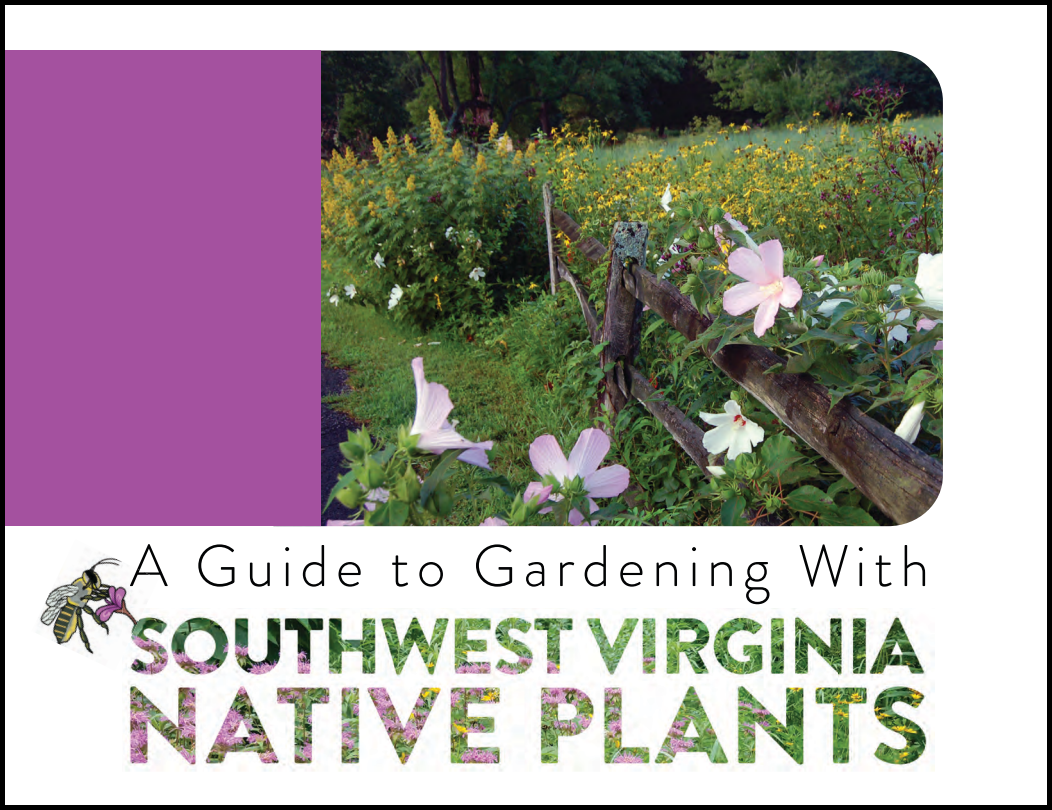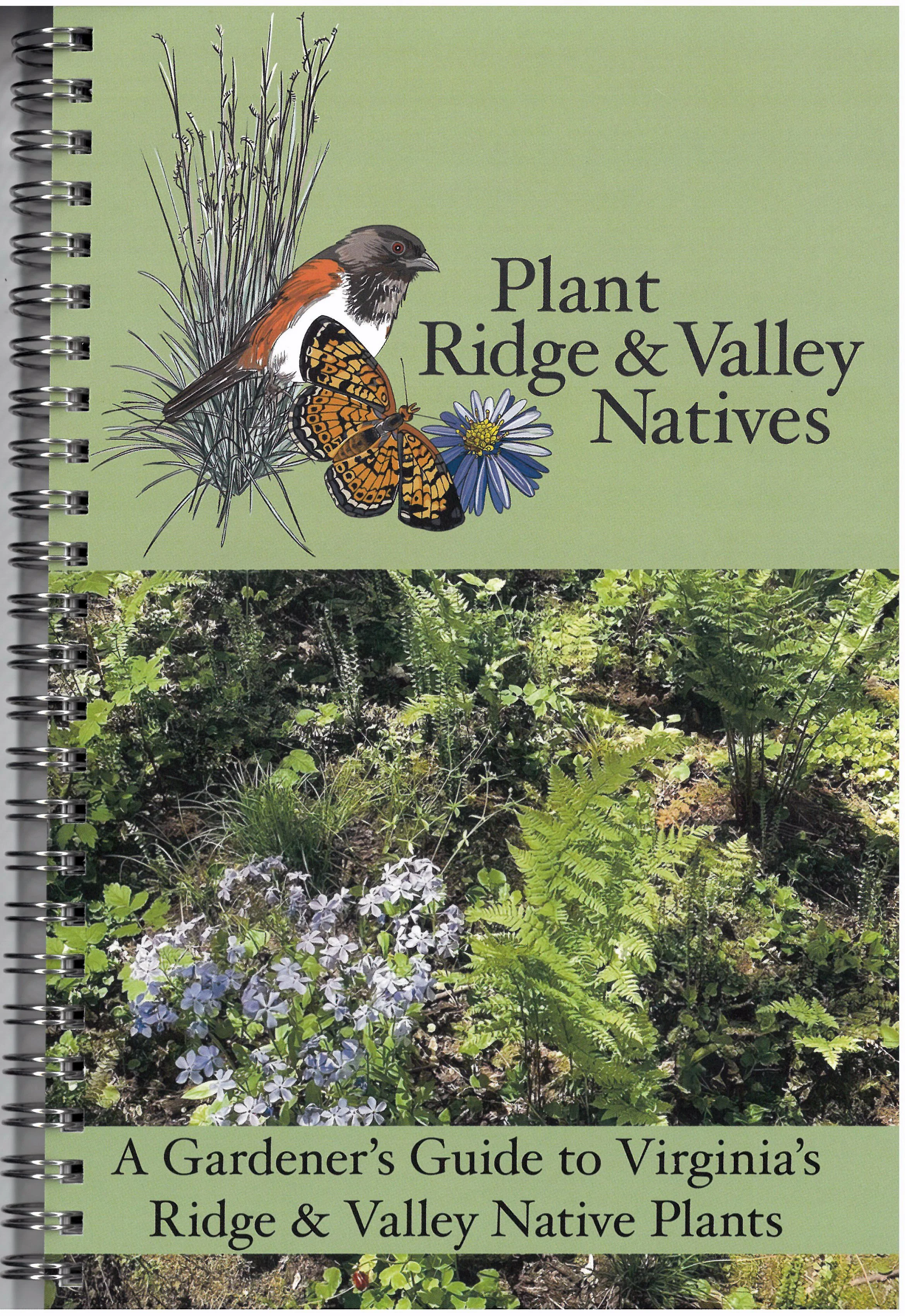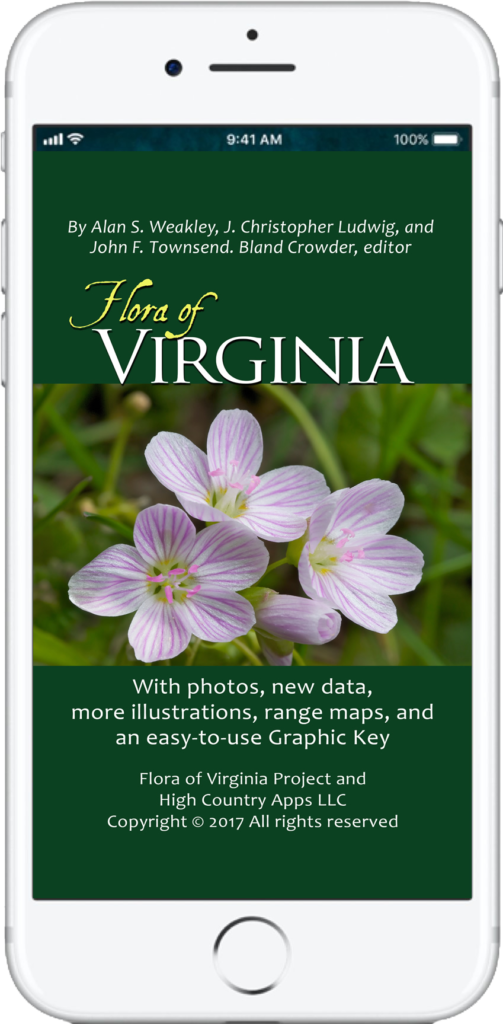American Beautyberry, Callicarpa americana, enjoyed by the Black-throated Blue Warbler. Photo by Will Stuart.
“Junk Trees” and the Native Understory
By Eileen Ellsworth, Plant NOVA Natives Campaign
Take a moment to stand in the scaly shoes of a migrating songbird along the Atlantic Flyway this fall. Passing through Virginia, you will still have a long way to go before reaching your southern wintering grounds. Imagine your relief when, after an entire night of flying, you find a stopover habitat to rest and refuel before the next leg of the journey. And what is your favorite food from the on-site offerings? Berries that grow on native trees and shrubs, all of which are wildlife powerhouses. Despite that, some of the best producers are labeled “junk trees” in today’s gardening and landscaping industries because they aren’t someone’s idea of what a yard tree should look like.
To show how far afield we have drifted in our plant-think, consider the results of this 2022 study by the Center for Conservation Biology (CCB). Researchers working on the eastern shore of Virginia analyzed the nutritional content of several native plant berries to discover which ones provide the biggest energy boost for migrating birds. Next, they measured levels of berry removal from plants during the fall migration to determine which berries were most preferred. Considerable overlap existed between the most nutritious and the most popular native plant berries, as follows:
The most nutritious native tree berries, starting with the best, were
Sassafras
Bayberry
Virginia Creeper
Pokeweed
Devil’s Walking-stick
American Beautyberry
Hackberry
Wild grapes.
The most preferred native plant berries, starting with the most popular, were
Sassafras
Devil’s Walking-stick
Pokeweed
Virginia Creeper
American Beautyberry
Bayberry
Hackberry
American Holly.
These plants are not just profuse berry producers. They are classic native understory shrubs and trees that have been disappearing from our landscapes in modern times. White-tailed deer have over-browsed the understory. Non-native invasives outcompete the natives. Plant diseases proliferate as the climate warms. And humans persist in calling some native plants “junk” and discourage their purchase. It is a perfect storm of destructive pressures and wrong thinking. At least the thinking part is something we can reverse along with the behavior that flows from it.
Let us ditch the “junk tree” label and take a closer look at three rock star “treasure trees” included in the CCB study.
Sassafras: Sassafras berries were rated #1 in the study for both nutritional value and bird popularity. Who knew? Woodpeckers, mockingbirds, catbirds, flycatchers, phoebes, vireos, wild turkeys, and yellowthroat warblers all enjoy the feast. The tree also provides excellent support for squirrels, rabbits, and other mammals and hosts some very cool moth species such as the Imperial, Promethea, Cecropia, and Io moths as well as the remarkably handsome Spicebush Swallowtail caterpillar.
Sassafras grows very fast and reaches heights of 30-60 feet in ideal conditions. You’ll need to plant more than one if you want berries, as only the female trees produce them. White-tailed deer relentlessly browse the tree, so some fencing is recommended for the first few years. Flower and berry production begins at ten years, and the abundant clusters of yellow flowers in April and May are simply spectacular. The fruit ripens in September, just in time for the fall migrations. The berry’s appearance has been likened to a blue-black egg sitting atop a bright red golf tee. Its leaves are just as unique. Three distinct leaf shapes - the mitten, the three-lobe, and the oval - all grow on the same tree and turn bright yellow, orange, and red in the fall.
Its wildlife value and unique features say it all.
Devil’s walking-stick: The CCB study rated Devil’s Walking-stick berries as #5 for nutritional value and #2 in popularity. Cedar waxwings, wood thrushes, white-throated sparrows, Swanson's thrush, American robins, gray catbirds, northern mockingbirds, rose-breasted grosbeaks, dark-eyed juncos, and various migrating warblers are all avid consumers.
Another fast grower, the tree/shrub reaches heights of 10-30 feet, making it ideal for yards and gardens where larger canopy trees can’t fit. It also reproduces quickly by suckering roots and often forms colonies in open fields, wood margins, and moist woods. You only need to purchase and plant one specimen to set fruit, and berries appear as early as year three or four.
Devil’s Walking-stick is a native plant that looks positively exotic. Spot it once and you will never forget it. Prominent thorns grow along the trunk, stems, and leaf stalks (thus, the label “junk”). The thorns give the plant its name while also discouraging most deer browse. Small white or creamy white flowers appear in mid-to-late summer and form showy, fragrant canopies above the huge compound leaves, attracting many pollinators. When dark purple berries appear in the fall, they hang on stalks that have turned a vivid burgundy or lacy red.
This plant is just plain crazy beautiful.
American Beautyberry: We mention this even though it is native further south but not in Northern Virginia, because we would like to warn people not to buy the wrong species by mistake, which happens commonly.The CCB study rates American Beautyberry #6 for berry nutrition and #5 for bird popularity. While Sassafras and Devil’s Walking-stick rarely appear on landscaping plans, American beautyberry is a frequent choice and never designated “junk” in anyone’s book.
In spring and summer, the plant looks ordinary with unremarkable leaves and inconspicuous flowers. Come the fall, however, the plant transforms itself as tight clusters of bright purple berries ripen along the entire length of the stem. Those berries last for weeks, but their taste improves as they age and ferment on the stems, making them a fan favorite for migrating birds. American robins, mockingbirds, cardinals, towhees, thrashers, gray catbirds, and finches are known customers among 40 species relying on the tree for late season food.
American Beautyberry also grows fast to reach a mature size of up to about 8 feet. Deer eat it, so fencing is recommended until it is well established.
Here is the warning. When purchasing American Beautyberry, be aware that Asian cultivars are often sold under the name “Beautyberry” and can be confused with the straight native. Only purchase Callicarpa americana. Mislabelling is common even then. Devil's Walking-stick (Aralia spinosa) also has an invasive look-alike (Aralia elata.)
When we label a native plant as “junk”, it is often because of thorns, poor-quality wood, or aggressive growth and spread. But the label also reflects our severed connection with nature. A “junk tree” may or may not please us, but it is a migrating bird’s vital food source, an uncommon moth’s host plant, and a native bee’s essential nectar source.
One person’s junk has always been another’s treasure. Let’s value what matters.
Learn More About Landscaping for Resident and Migratory Birds
This full color publication was produced by the Virginia Coastal Zone Management Program and the Center for Conservation Biology at the College of William and Mary. It tells the story of the fall migration of thousands of birds along the Virginia Eastern Shore. The publication offers many wonderful photos of migratory bird species and describes how these species rely on the area's vegetation during their migration.
Migratory Birds of the Lower Delmarva - A Landowners Guide
This guide was produced by the Virginia Coastal Zone Management Program and the Center for Conservation Biology at the College of William and Mary. The guide provides guidelines for restoring and enhancing migratory songbird habitat.

















